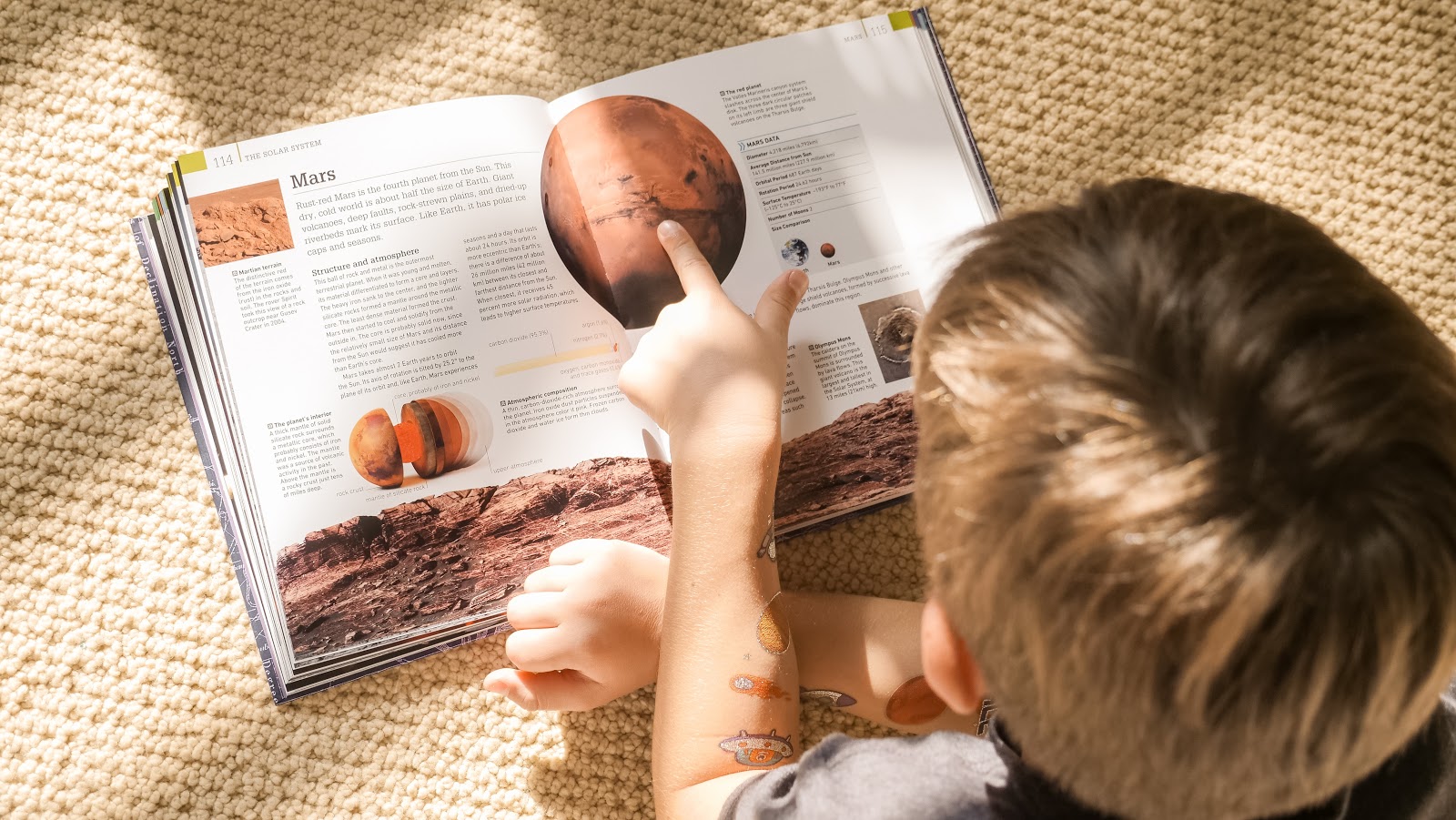Guest Post: Choosing Books at Your Child’s Reading Level

Guest post by Andrea Gibbs with Baby Steps Preschool in New York.
As a parent, you’ll want your child to have the best possible education. One way to do that is by choosing books for them to read at their appropriate reading level — but how do you know your child’s reading level?
To better understand this, let’s take a look at the components of reading levels. First things first, there are two components of reading levels: reading ability and interest. Reading ability reflects what a reader can comprehend (at different speeds), while interest reflects how much a reader will enjoy specific material.
How Should I Choose Books at My Child’s Reading Level?
There are many ways to narrow down possible books at your child’s reading level. You could check out reading lists by grade level, or use the suggested reading level provided on each book’s back or inside cover. You could also check out the recommended reading level on the surface of your child’s textbook, or you can try to find a spot in the book itself that would indicate where your child might be on their reading level.
Alternatively, it may be easier for you to figure out your child’s reading level by assessing their knowledge and understanding of various concepts. For example, if your kid struggles with difficult words or doesn’t understand what they mean, then he or she may not be ready for a more advanced book.
Reading Level Example: A book might have a reading level of 5 for pre-kindergarten, 2 for kindergarten, and 10 for 3rd grade. For a child in kindergarten, a 10 reading level book will likely be too difficult. If you try to read a book with your child and see that they can’t read the words or understand the story, you may need to look for books at a lower level.

Parents and teachers want to see a child making progress in reading. However many children may start to read at a level that is too hard for them, and they may fall behind. A good rule of thumb is to look for books that are slightly above their reading level. If the child can read the book without frustration, then they are likely reading at their appropriate level.
Reading levels are based on several factors, including the number of words per page and average sentence length. A higher reading level means more words per page and longer sentences. As you select books for your child’s reading level, think about these factors if you’re not using a leveled text or chart.
What if the book you choose is too easy or too hard for your child?
If a book is too easy, your child may get bored, fall behind, and not participate in the reading process. If you choose a book that is too difficult, your child might become frustrated.
It’s important to remember that everyone’s reading ability develops at a different rate. A child might be able to read a straightforward book, but they may not be able to read something more challenging. You might have to skip some books that are too easy or too hard. Typically, if a child is reading the same level book for too long, he or she will become bored.
Remember that books are a great learning tool for developing readers, but every child learns at a different rate. If you have a student who cannot read the same level book for too long, you might consider using two books to make reading more exciting and engaging. You could provide your child with one book at their reading level and another at a slightly more difficult level.
Here are 10 of the most valuable tips in selecting a text for your child’s reading level.
10 Tips in Selecting a Book For Your Child’s Reading Level
1. Choose books that are slightly above your child’s reading level.
2. When looking for a book, whether online or at the library, try to find words that your child will need to look up while reading.
3. Avoid choosing books that are below your child’s reading level.
4. Make sure that you find a book that is interesting and enjoyable for your child.
5. Ask yourself: is this book age-appropriate?
6. Look for books that have an important message or theme: is there a lesson to learn, or does it illustrate how to treat others?
7. Does the book have “read-aloud” appeal? Reading aloud is a great way to help your child learn to enjoy books, so try to choose something that you’ll both enjoy.
8. Never choose a book that you don’t think will capture your child’s attention.
9. As you read, be sure to ask your child questions. It will help expand their vocabulary and comprehension.
10. Don’t worry about reading every book in a series once you’ve selected one or two of them for your child. Sometimes the first in a series can more intriguing than the sequels!
Finding Books at Your Child’s Reading Level
There are a variety of ways to find books at your child’s reading level. You could try to guess based on their age, what grade they’ll be in when school starts, by browsing through bookstores, or by checking reading lists and suggested reading levels found on the backs of books. You can also figure out which reading group your child belong to by assessing their knowledge and understanding of certain words and concepts.
When you find a book at your child’s reading level, you’ll be able to tell because the cover or title will indicate the appropriate age group that the book is meant for. Your child will also have an easier time understanding what is going on and identifying words he or she is already familiar with. And, of course, he or she will feel a sense of accomplishment when they can read on their own for the first time.

